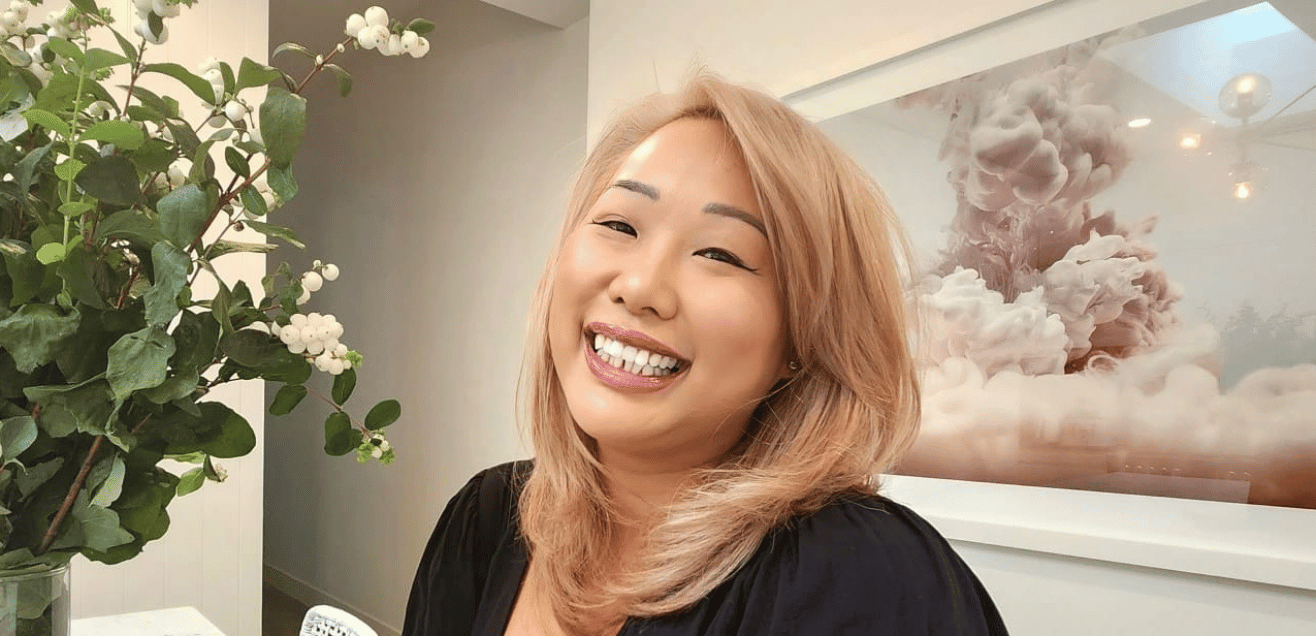Head of Supply for Stage and Screen, Linh Tran, has faced many challenges throughout her career in the travel industry. However, when faced with a personal health crisis, Linh turned to data and facts to make life-changing decisions. After learning she had a gene mutation that put her at extremely high risk of developing breast cancer, Linh had to face life-changing choices of her own and discovered a powerful reservoir of inner strength. By sharing her story, Linh hopes to offer reassurance to others who may be facing similar adversities.
As Head of Supply at Stage and Screen, Linh Tran is a hardworking problem-solver. With experience in London and New York, she now manages the brand’s entertainment hotel program, airline offers, and supplier relationships from Melbourne. With 12 years of experience in the entertainment sector, Linh understands the importance of small details, such as arranging higher baggage allowances and flexible crew accommodations for production and film industry travelers.
Linh’s role is not just about networking and meeting suppliers; it also involves extensive data analysis. When faced with a personal life curveball, Linh turned to statistics and facts to decide on her next step. In a strange turn of events, her search for answers to a family health crisis led her to make a decision that may have ultimately saved her life.
Tough, determined and focused, Linh knows that storylines you imagine ‘only happen in the movies’ do happen in real life, but they can have happy endings.
In 2015, when Linh’s mother was diagnosed with breast cancer, she returned to the UK to support her through treatment. After her mother’s remission, Linh and her siblings were tested to determine if the cancer was caused by a gene mutation or was simply a stroke of bad luck. These tests revealed that Linh and a sibling carried a gene mutation (BRCA1 and BRCA2), putting them at a 70% lifetime risk of developing breast cancer, compared to the average woman’s 12% risk.

“There’s a 50% chance of inheriting the gene (if a first-degree relative is diagnosed) and our family is textbook; two of us have it and the other two don’t.”
Linh decided to undergo a prophylactic double mastectomy in 2020, scheduled for the middle of this year (due to delays as a result of the pandemic) at the Peter MacCallum Cancer Institute in Melbourne. The surgery, which includes breast reconstruction, will reduce her risk of developing breast cancer to 4%, and she will not need mammograms until after the age of 55. Although major, Linh is optimistic and believes it’s a small price to pay compared to chemotherapy and radiation.

Due to the BRCA1 gene mutation, Linh faces an increased risk of developing ovarian cancer. Unfortunately, there is currently no diagnostic test for ovarian cancer, and the fatality rate is high. Less than half of women diagnosed with the disease are still alive after five years.
“My doctors strongly recommended that I have my ovaries and fallopian tubes removed at age 40, so that’s what we are working towards now,” says Linh, and she is currently undergoing fertility treatment to freeze her eggs. This surgery will induce early menopause, which Linh is not looking forward to. Despite the daunting situation, Linh is focusing on the fact that she is currently healthy and taking proactive steps to minimize the impact of the BRCA1 gene mutation.
Linh is grateful for the support she has received from Stage and Screen, which has allowed her to attend appointments and undergo treatments without exhausting her sick leave. “Without hybrid working or flexibility to go to appointments, I would have already used all my sick leave,” Linh says. “When I told my managers I would have to be out for at least two weeks for the surgery, and with only two weeks’ notice, they didn’t bat an eye. Their response was ‘just tell us what you need and we’ll make it happen’.”

Linh hopes that by sharing her story, she can offer support and reassurance to others who may be impacted by the BRCA mutation, which affects one in 400 women.
